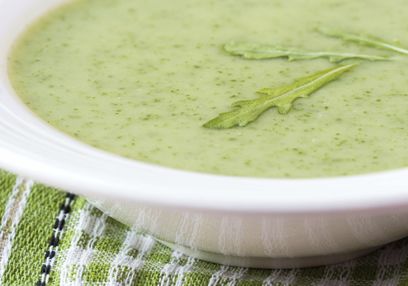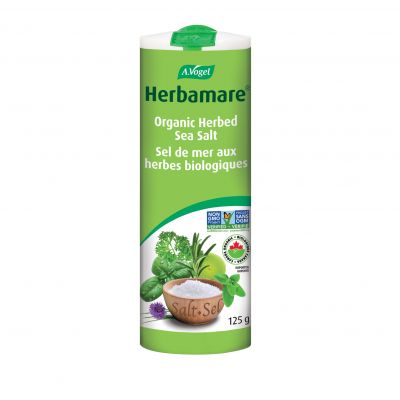Allergic asthma occurs when an allergen triggers your asthma symptoms. Some individuals will experience sneezing and watery eyes when they encounter an allergen; those with allergic asthma, on the other hand, will experience an asthma attack.
When your immune system encounters offending allergens, it overreacts by producing specific antibodies (called immunoglobulin E or IgE antibodies). These antibodies then signal the immune system to mount an aggressive and rapid attack, which causes the release of inflammation-mediating chemicals like histamine.
Histamine is the chief compound responsible for asthmatic symptoms, including the inflammation and tightening of airways and excessive mucous secretion.
Symptoms of allergic and non-allergic asthma are virtually the same. The four cardinal signs of asthma are bronchospasm (tightening of airway muscles), edema (excess fluid), inflammation, and mucous secretion.
Allergic asthma can be triggered by more than just the common allergens. Irritants including tobacco smoke, air pollution, and chemical odours and perfumes may also be at fault for inducing an allergic asthma attack.
Are you unsure of the cause of your allergic asthma?
Here are 10 common and unsuspecting triggers that may send your allergic asthma into a tailspin:
- Air fresheners
- Paint
- Food preservatives, such as sulfites found in wine
- Fruits, including apples, pears, bananas, and peaches
- Cockroaches, specifically their saliva, feces, and body parts
- Dust mites
- Mould
- Pets
- Pollen
- Smoke, such as tobacco smoke and the smoke released during the combustion of wood
Lifestyle changes for allergic asthma
What is rosacea and what are some of the symptoms?
A chronic inflammatory condition mainly affecting the skin of the face. Rosacea can start with a blush tone appearing on the skin, and can lead to an overall redness of the face which can start mild and become more pronounced with time.
How many Canadians suffer from rosacea?
According to the Canadian Dermatology Association, over three million Canadians suffer from this condition. It typically begins to affect individuals later in age, around 30 to 50, and those of fair complexion.
The condition itself, while more common in women, tends to be more severe in men and is highly associated with genetics and therefore, a family connection. This is especially true if that familial connection is a member of your immediate family.
Are there different forms of the skin condition?
Certain individuals may experience red eyes as well that have a gritty sensation, such as sand being caught between the lids.
Four types of rosacea exist:
- Erythematotelangiectatic – this form is characterized by flushing and persistent redness of the central face with visible blood vessels present. This form is also accompanied by a burning or stinging sensation of the skin.
- Ocular – this is the most severe form of the condition as it can range from the sensation of something foreign caught in the eye, to severe disruption of the ocular surface. To date, no association has been found between the severity of the rosacea and the risk of developing ocular symptoms.
- Papulopustular – this form, as the name implies, includes the development of papules and pustules that come and go. They may resemble acne, but there are no blackheads or whiteheads.
- Phymatous – this form can affect various parts of the head including the chin, ears, eyelids, and nose. These areas begin to show signs of thickening skin and irregular surface nodularities. Rhinophyma (of the nose) was often associated with heavy alcohol use, but has now been shown to have other causes, such as rosacea.
What kind of allergies (pollen, pollution or food) can trigger rosacea?
At this point, it isn't quite clear which allergen plays a larger role, but science is teaching us something new each day. If you suspect you have allergies, you can help yourself by booking an appointment with an allergist to determine what you are susceptible to. Positive reactions typically appear within 20 minutes, so it won't involve days of testing.
Why do allergens trigger rosacea?
There are agents known as antimicrobial peptides produced by the skin that contribute to the immune defense of the body. Many of these accumulate in the hair follicle to protect against any bacteria that would like nothing more than to dive deep and settle in to the follicle. A certain antimicrobial peptide known as cathelicidin LL-37 has been shown to encourage inflammation and the development of blood vessels in inappropriate areas. High levels of this agent are starting to be explored as a potential factor for rosacea.
In response, these antimicrobial peptides are released to help defend against the incoming invader. Typically, humans should not respond to harmless agents such as dirt, pollen, or dandruff. In those with allergies, these agents cause the body to mount a full-blown immune response where white blood cells are dispatched to deal with the intruders. This system works well against pathogens that will cause illness or harm, but not so well if it pushes the body into anaphylactic shock.
What can be done to prevent it?
Humans share the body with countless other species, one of which is known as D. folliculorum, a microscopic mite that feeds on dead skin cells. Typically, these hitchhikers are harmless, preferring to hang around areas where sebum is produced, such as the hair follicles of the face. When their normal numbers begin to rise, this can cause inflammation of the follicle and redness of the affected area. A team of researchers determined that their populations were up to 5.7x higher in those with rosacea. A regular skin care routine and washing pillow cases and sheets to remove dead skin cells may help control their numbers.
As rosacea is a condition affecting cosmetic appearance, it is also important to support those who may be suffering psychologically. If you yourself are noticing intrusive thoughts in your own mind or see a friend withdrawing from activities, reach out and let them know you're there to listen.
Should I be avoiding the sun?
While no one is going to suggest that you become a creature of the night, rosacea can be exacerbated by ultraviolet rays. Photoprotection in the form of sunscreen should become a normal part of stepping outside, and yes, even on cloudy days.
What can I take to manage my symptoms right now?
If you've tried all of these and still have that annoying itch, products such as the homeopathic remedy Allergy Relief can help eliminate the toxins that could be aggravating your symptoms. A clinical study demonstrated a self-reported improvement in allergy symptoms in 88.5% of participants.
A key draw of Allergy Relief is that it doesn't have to simply be used when you feel your allergies flaring up, it can be used prophylactically to ensure the symptoms don't flare up when exposed to pollutants.
References
https://dermatology.ca/public-patients/skin/rosacea/
https://www.ncbi.nlm.nih.gov/pmc/articles/PMC3174284/ https://www.ncbi.nlm.nih.gov/pmc/articles/PMC4441063/
https://www.ncbi.nlm.nih.gov/pmc/articles/PMC5134688/
https://www.ncbi.nlm.nih.gov/pmc/articles/PMC5828925/
https://www.ncbi.nlm.nih.gov/pubmed/12464945/
https://www.ncbi.nlm.nih.gov/pubmed/19874433/
https://www.ncbi.nlm.nih.gov/pubmed/21697881/






